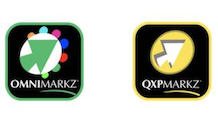According to Novus Holdings, a book store was most likely one of the first places you went last season for year-end and Christmas presents. The reasons are obvious: a book is a quality gift that ages gracefully and, if well chosen, holds appeal even hours of pleasure beyond the initial delight of unwrapping it. This is an interesting realisation in our digitally advancing times.
According to research by Good e-Reader, e-book sales dipped by 20% in the first half of 2016. We have also seen industry giant, Amazon, expanding its book-selling empire with the very thing that it once tried to destroy: bookstores.
‘What is intriguing is how and why print-is-dead themes persist in spite of evidence to the contrary. While print is under tremendous pressure in the developed world, there is still an increased demand for printed products in developing markets in order to advance literacy, education, and democracy. In sub-Saharan Africa, digital has grown alongside print and the need for printed ballots and school collateral is unlikely to end soon,’ said Peter Metcalfe, Group Executive of Marketing and Sales at Novus Holdings.
A survey conducted by Novus Holdings in 2014 found that an overwhelming 97% of respondents have fond memories of a book they read when they were young. Many noted that their childhood books had been kept as a memento or had been passed on to their own children. Respondents also said that they still prefer reading printed books to their children.
‘Print has tangible and emotional appeal to its readers and users. On a practical level, printed books are more convenient in that you can almost take them anywhere with you without the need for a cable to charge it or the power to do so,’ added Metcalfe.
Following the release of the Codex Group’s April 2016 survey of 4992 book purchasers, which showed that e-book units had fallen 3.5% over the previous year, Codex president Peter Hildick-Smith gave two likely causes. Firstly, e-book devices have not delivered the quality long-form reading experience needed to supplant print; and, secondly, a new consumer phenomenon ‘digital fatigue’ has begun to emerge. The survey also highlighted that most book buyers spend up to five hours daily on a screen and would choose to reduce their screen time if they possibly could.
A study by US linguistics professor Naomi Baron revealed that 92% of a group of 300 tertiary-level students from various countries preferred to do their ‘serious reading’ from a real book with ‘actual ink printed on a physical page’; and this, despite 50% of the group owning a tablet or e-reader, and an even greater proportion owning a smartphone which supports e-reading material.
Metcalfe concluded, ‘South African print companies are well placed to offer the experience, reach and state-of-the-art technology to keep print effective. Digital adoption has been a slower process than envisaged and has not replaced or displaced print. The debate is simply no longer about which format is better, digital versus print, but rather digital and print – there is place for both.’





















